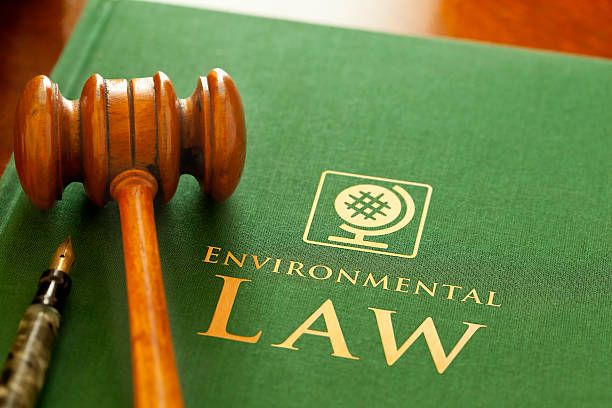Introduction
Welcome to the official blog of the Law Offices of Kr. Vivek Tanwar Advocate and Associates, where we are dedicated to providing litigation support services for matters related to the environment. In today’s blog post, we aim to shed light on the prevailing issues surrounding the environment, the legal framework in place for their protection, and the steps we can take as a society to combat these acts. Join us as we explore this critical subject and empower you with the knowledge to protect your rights and safety.
Role Of Environmental Law And Sustainability
Environmental law and sustainability play a crucial role in preserving our planet’s natural resources, mitigating climate change, and ensuring a sustainable future for generations to come. With increasing awareness of environmental issues, governments, organizations, and individuals are recognizing the need for robust legal frameworks and sustainable practices.
The Significance of Environmental Law
Environmental law encompasses a broad range of legal principles, regulations, and treaties designed to protect the environment and address environmental challenges. Its primary objective is to ensure the sustainable use and management of natural resources while preventing pollution and ecological degradation. Environmental law provides a framework for decision-making, sets standards for environmental protection, and establishes mechanisms for enforcement and accountability.
Promoting Sustainability
- Conservation and Biodiversity Protection:
- Environmental laws facilitate the conservation of ecosystems and biodiversity by establishing protected areas, regulating hunting and fishing activities, and safeguarding endangered species. These actions contribute to the preservation of ecological balance and the protection of the wide range of plant and animal species that are vital for sustaining healthy ecosystems.
- Pollution Control and Waste Management:
- Environmental regulations focus on minimizing pollution and managing waste to protect air, water, and soil quality. Laws govern emissions from industries, establish limits on pollutant discharges, and promote sustainable waste management practices. By mitigating pollution, these laws contribute to sustainable development and human health.
- Climate Change Mitigation and Adaptation:
- Environmental law plays a vital role in addressing the challenges posed by climate change. It provides a legal framework for reducing greenhouse gas emissions, promoting renewable energy sources, and adapting to the impacts of climate change. International agreements like the Paris Agreement outline commitments and cooperation to tackle climate change on a global scale.
- Sustainable Resource Management:
- Environmental laws regulate the extraction, use, and conservation of natural resources such as minerals, forests, and water. These laws aim to prevent overexploitation, promote sustainable resource management practices, and ensure equitable access to resources for present and future generations.
- Corporate Responsibility and Environmental Compliance:
- Environmental laws hold corporations accountable for their environmental impacts. Companies are required to comply with regulations on emissions, waste disposal, and resource management. Additionally, legal frameworks encourage corporate sustainability initiatives, environmental impact assessments, and reporting on environmental performance.
Challenges and Opportunities
Environmental law faces several challenges in achieving sustainability:
- Transboundary Issues:
- Environmental challenges often transcend national boundaries, requiring international cooperation and harmonization of laws. Collaborative efforts and global agreements are necessary to address issues like transboundary pollution, biodiversity loss, and climate change effectively.
- Enforcement and Compliance:
- Effective enforcement of environmental regulations is essential to ensure compliance. Strengthening enforcement mechanisms, improving monitoring systems, and implementing penalties for non-compliance are crucial for maintaining the integrity of environmental laws.
- Technological Advancements:
- Rapid technological advancements bring new opportunities and challenges. Environmental law needs to keep pace with emerging technologies, such as artificial intelligence, genetic engineering, and renewable energy innovations, to address their potential environmental impacts effectively.
Conclusion
Environmental law and sustainability are fundamental to protecting our planet and achieving a sustainable future. Through robust legal frameworks, environmental regulations, and international cooperation, we can address pressing environmental challenges, mitigate climate change, and ensure the responsible use and management of natural resources. It is imperative that governments, organizations, and individuals work together to promote environmental stewardship, comply with environmental laws, and adopt sustainable practices for the benefit of present and future generations.
We are a law firm in the name and style of Law Offices of Kr. Vivek Tanwar Advocate and Associates at Gurugram and Rewari. We are providing litigation support services for matters related to Environmental Law.

